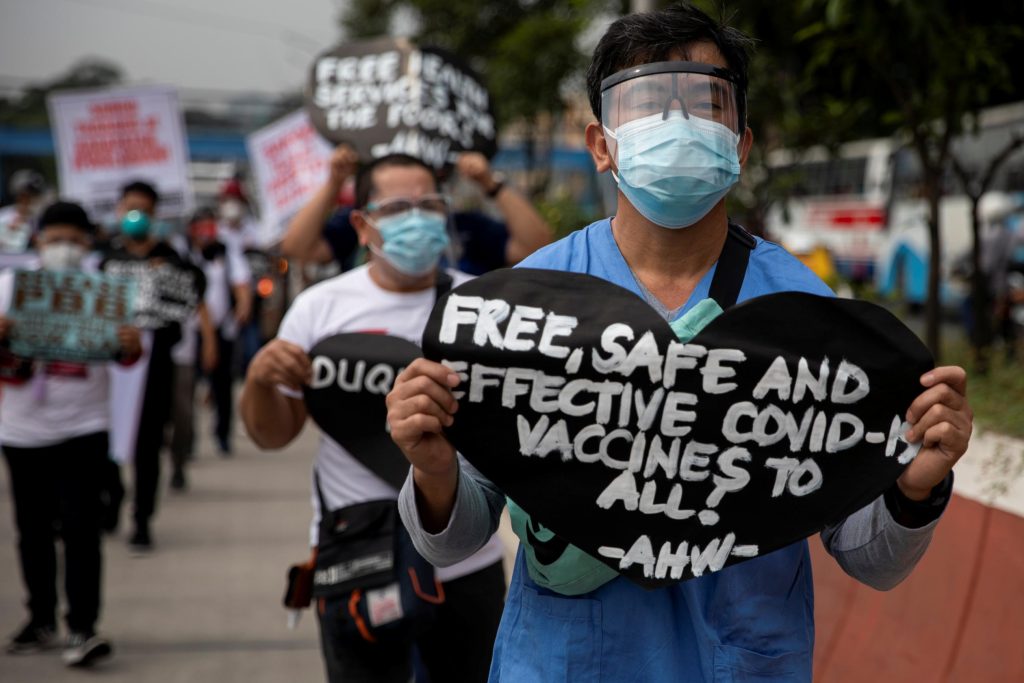
Living the COVID endemic life
February 3, 2022
Concepcion: Booster Card Requirement Should Be Prioritized In High-Vax Areas
February 7, 2022
Concepcion: Treat Alert Levels Like Storm Warning Signals
As it lays out its plans for an exit from the pandemic, the Philippines should take a cue from how it manages typhoons. This was the suggestion of Presidential Adviser for Entrepreneurship Joey Concepcion, as he said that it is possible for the country to learn to live with Covid by adapting a framework that has already worked for it in the past.
“I believe we can rationalize the Alert Levels system and take a cue from how our country manages typhoon warnings,” he said. “We don’t have Public Storm Signal Warnings everyday because we’ve learned that a light shower or thunderstorm is not enough to shut down schools or tell people to stay home,” he said.
Likewise, the Philippines has never dropped storm signal warning systems as typhoons are a seasonal occurrence. “There is no surefire way to prevent a typhoon from entering the country, just as there is no guarantee we can keep away future variants of Covid,” he said.
Concepcion clarified that alert levels should not be scrapped altogether. “When the threat is there, then we call the alert levels,” he said. “What we need is to align the basic protocols that do or do not warrant the placing of alert levels,” he said. “What we are doing is preparing a plan. Without a plan how do you move on? If we anticipate every variant that comes along, we will just get stuck in the same place,” he said.
Instead, the Go Negosyo founder advocated for the requirement for people to present vaccination cards, and even booster cards where booster rollouts are high, in areas where there is a higher risk of transmission. Mandatory health protocols such as the proper wearing of face masks and social distancing, he said, remain a given. “I think that after two years of the pandemic, Filipinos already know how they can keep themselves safe even when in an indoor setting, in crowds, and in situations where they have to remove their masks,” he said.
The country’s top pandemic response implementers Carlito Galvez and Vince Dizon said that the government is already preparing its pandemic exit plan, to be put in place possibly as cases in the country decline to less than 1,000 a day. Independent research group OCTA Research, meanwhile, is projecting lower cases by mid-February, with the emergence of a deadlier variant highly unlikely. Concepcion shared that the private sector will come together in a townhall meeting to come up with inputs to the country’s pandemic exit plan.
“What I am keeping an eye on in the next few weeks are the schools. With more than 40 million of the country’s 109-plus million Filipinos under the age of 19, the reopening of face-to-face classes will spur so much mobility it’s only right that we make sure everything goes smoothly,” Concepcion said.
He suggested that April and May be spent vaccinating schoolchildren in time to try to reopen schools by June. He also suggested allowing only fully vaccinated children from fully vaccinated households or those with no unvaccinated senior citizens in the household to return to face-to-face classes. “This will not only minimize the risks for the vulnerable, it might encourage the vaccine holdouts to get their shots, and the LGUs to also ramp up their vaccinations,” he said.
“It should be a gradual approach to moving on from the pandemic,” he said, adding that with only four months to go before a new administration takes office, it is important to ensure continuity in the country’s pandemic response.
“Bottom line is, we have to move on. The first and second quarters of 2022 must be a period of growth, low alert levels and the strict implementation of health protocols, children ready to safely return to school, and a country that is no longer afflicted by Covid,” he said.

2/F RFM Corporate Center, Pioneer cor. Sheridan Sts. Mandaluyong City, Metro Manila, Philippines

